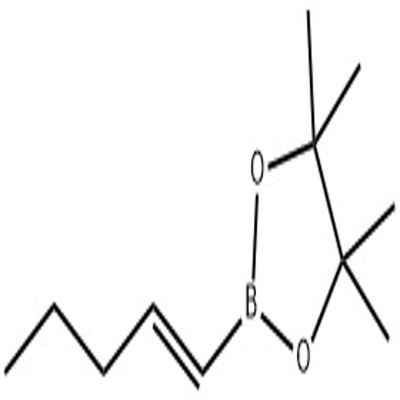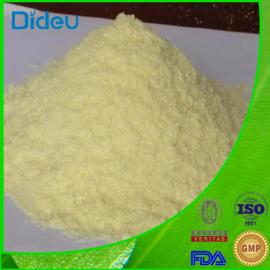-
Categories
-
Pharmaceutical Intermediates
-
Active Pharmaceutical Ingredients
-
Food Additives
- Industrial Coatings
- Agrochemicals
- Dyes and Pigments
- Surfactant
- Flavors and Fragrances
- Chemical Reagents
- Catalyst and Auxiliary
- Natural Products
- Inorganic Chemistry
-
Organic Chemistry
-
Biochemical Engineering
- Analytical Chemistry
- Cosmetic Ingredient
-
Pharmaceutical Intermediates
Promotion
ECHEMI Mall
Wholesale
Weekly Price
Exhibition
News
-
Trade Service
Text . . . Although immune checkpoint blocking (ICB) therapy, which is resistant to immune checkpoint blocking, such as PD-1/L1, has revolutionized cancer treatment, only a small percentage (10-30%) of cancer patients show a sustained clinical response.
, there is a great interest in identifying pre-existing and acquired immunoresistance mechanisms and developing new treatments to prevent recurrence. On July 13,
, researchers at UPMC Hillman Cancer Center and the University of Pittsburgh School of Medicine published an article in Nature Immunology revealing their latest findings based on mouse and human sample studies: Blocking NRP1, an unidentified immune checkpoint in T cells, can improve immunotherapy and help prevent cancer recurrence.
"There's still a lot of work to be done to improve immunotherapy for cancer, because only a small number of people currently benefit, even among them, we're seeing a lot of tumors recur," said Dr. Dario A.A. Vignali, a communications author for the Nature Given sitcom.
our findings point to an important new anti-tumor mechanism that can provide a long-lasting and long-term immune response to tumors.
" Vignali and colleagues found that a protein called neurofibrillin-1 (NRP1) plays an important role in suppressing the immune response to cancer.
NRP1 was originally identified as a neuronal and endothelial cell receptor necessary for normal embryonic development, axon guidance, and vascular formation, and is also expressed in a variety of immune cell types that are involved in key immune functions.
NRP1 rises in regulated T cells in cancer patients, suggesting that it may be a target for cancer immunotherapy.
however, the functional effects of NRP1 on other T-cell subgroups, especially CD8-T cells, are still unclear. "NRP1 is known to exist on the surface of other T cells, and we wonder if it alters the function of killer T cells," said Dr. Chang Liu, the lead author of the
paper.
we suspect that its function may be the same as other immune checkpoint molecules, blocking it and preventing tumor growth.
" so Liu and his colleagues created a genetically modified mouse that specifically removed NRP1 from its killer T-cell surface.
when transplanting tumor cells into the mouse model, they expect tumors to grow or grow more slowly than normal animals, as they would have seen when blocking other checkpoint proteins.
, on the contrary, they don't see any difference. "We're a little disappointed and feel like we're in a dead end because removing NRP1 doesn't seem to affect anti-tumor immunity," Liu said, "but instead of giving up, we're asking another question: Does NRP1 change the immune system's ability to remember tumors?"
"They removed the primary tumor from the mice, waited a while, and then implanted the cancer cells again in another location to simulate the recurrence of the tumor in the surgical patient.
then, dramatic results emerged: mice with missing NRP1 gene on lethal T cells had a better preventive effect on secondary tumors, including relatively "cold" tumors such as B16.F10 mouse melanoma, and a more aggressive response to PD1 immunotherapy than normal mice.
NRP-1 limits the anti-tumor immune response and anti-PD1 immunotherapy of secondary tumors mediated by CD8-T cells. Further experiments
(photo: Nature Immunology) show that NRP1 controls how T cells develop and builds immune memory.
carrying NRP1 depletes killer T cells and is ineffective in fighting cancer cells, especially in the long run.
removing NRP1 enhances the immunity of T-cells, i.e. the immune response is stronger when the tumor is "seen" again.
these findings in mice are also related to studies of T-cells isolated from the blood of skin cancer or head and neck cancer patients.
had a higher level of NRP1 in the memory CD8-T cell subgroup in patients with advanced cancer compared to those of early-stage cancer, which was negatively related to the number of memory T cells, disease prognosis, and blocking reaction to immune checkpoints.
the increase of NRP1 in tumor patients was associated with poor survival rate and decreased response to immunocheckpoint blocking treatment. "This is a whole new area of understanding how to control anti-cancer immunity and will provide new treatment opportunities to promote and enhance longer-lasting, longer-term anti-tumor responses in cancer patients," said Vignali of
(Photo: Nature Immunology).
"Currently, drugs for NRP1, such as ASP1948, are already being used in combination with anti-PD-1 immunotherapy in clinical trials that will reveal more about the role of immune memory in the fight against cancer." "That's what you're getting back from persistence,"
Vignali said.
when the initial assumptions were proven to be wrong, we continued to look for other possibilities and finally made an important new discovery.
", the study found a new immune checkpoint, NRP1, which affects the development and function of CD8-T cells in tumors in an inherent way, and selectively affects the production of memory precursors during the antitumor immune response.
distinguishn NRP1 from other inhibitory receptors such as PD-1, CTLA4, and LAG3, which primarily affect the development and function of the t-cells.
Although the absence of NRP1 does not enhance the anti-tumor response of primary tumors, it has a substantial effect on the development of T-cell memory of secondary tumors.
CD8-T cell NRP1 deficiency joint immunological checkpoint blocking treatment can indeed improve tumor removal rate, which suggests that combined blocking PD-1 and NRP1 can provide cancer patients with more lasting systemic anti-tumor immunity and long-term remission.
References: 1 s Boosting immune memory sreoe cancer (Source: Medical Press) 2 s Chang Liu et al, Neuropilin-1 is a T seizzy checkpoint-point long-term anti-anti-i-ithy, Nature Nature -2020). DOI: 10.1038/s41590-020-0733-2.







